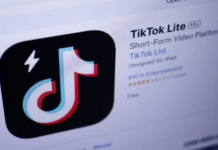The European Commission has launched five “non-compliance” investigations into how Apple, Google and Meta are complying with the new antitrust rules of the Digital Markets Act (DMA). In detail, the investigations concern the routing rules on self-preference in Google Search, on the Safari choice screen and on Meta’s “payment or consent model”.
The decision to launch these non-compliance investigations comes just two weeks after the deadline for implementing the Digital Markets Act rules expired and, as stated by Margrethe Vestager, European Commissioner for Competition, “show that the DMA is something we take very seriously”.
“Our five investigations involve Alphabet, Apple and Meta. This does not mean that we endorse all other measures implemented by gatekeepers that are not (or are not yet) subject to investigation. We will continue to use all available tools in the event that a gatekeeper attempts to circumvent or weaken the obligations of the DMA. It is important for us to achieve the objectives of the DMA so that consumers can benefit from open and contestable markets. A market with competition.”
These limit, among other things, the ability of developers to freely communicate and promote offers and to conclude contracts directly, including by imposing various charges.
“According to the DMA, gatekeepers must allow business users, free of charge, to communicate freely with end-users. And also to conclude contracts directly with its users. The purpose of this provision is to promote competition between alternative sales channels in the app economy. To achieve this, consumers must have access to all the necessary information about their choices,” he told Vestager.
Google received a €2.4 billion fine from the EU in 2017. With regard to Safari, on the other hand, the Commission’s fears are that Apple’s measures may still prevent users from really exercising their choice of services within the Apple ecosystem.
Finally, as far as Meta is concerned, the Commission’s fear is that the binary choice imposed by the “pay or consent” model of Mark Zuckerberg’s company may not provide a real alternative in the event that users do not consent, thus failing to achieve the goal of preventing the accumulation of personal data by gatekeepers. In practice, it will have to be examined whether the company actually allows users sufficient choice in the use of their personal data for advertising purposes.
The Commission is also taking other investigative steps to gather facts and information and to clarify whether Amazon might also prefer its own brand products on the Amazon Store (in violation of Article 6(5) of the DMA) and whether app distribution from the web (sideloading) could defeat the obligations under Article 6, paragraph 4 of the DMA.















